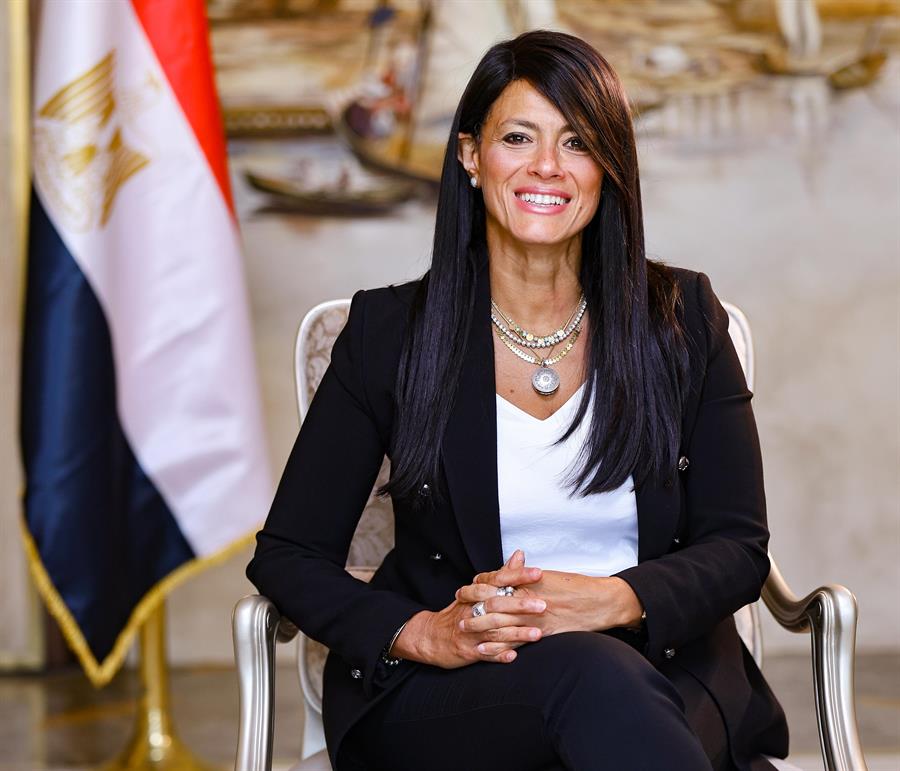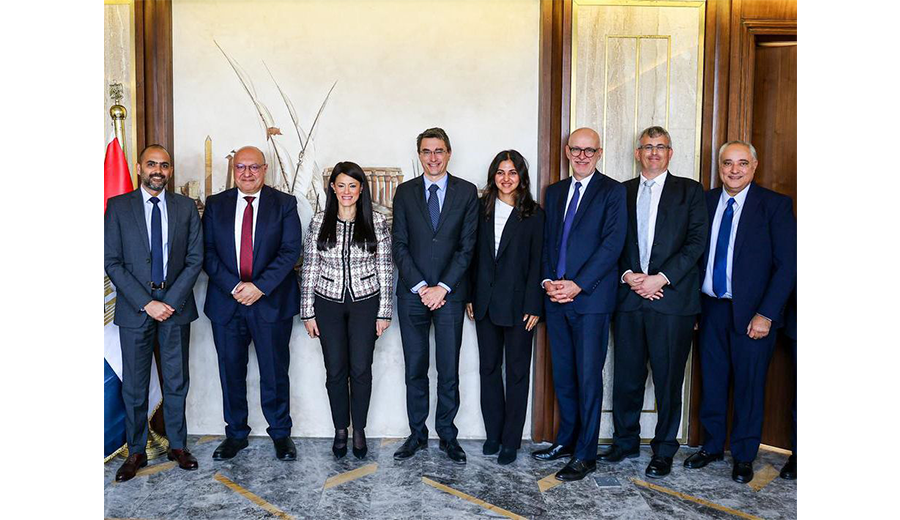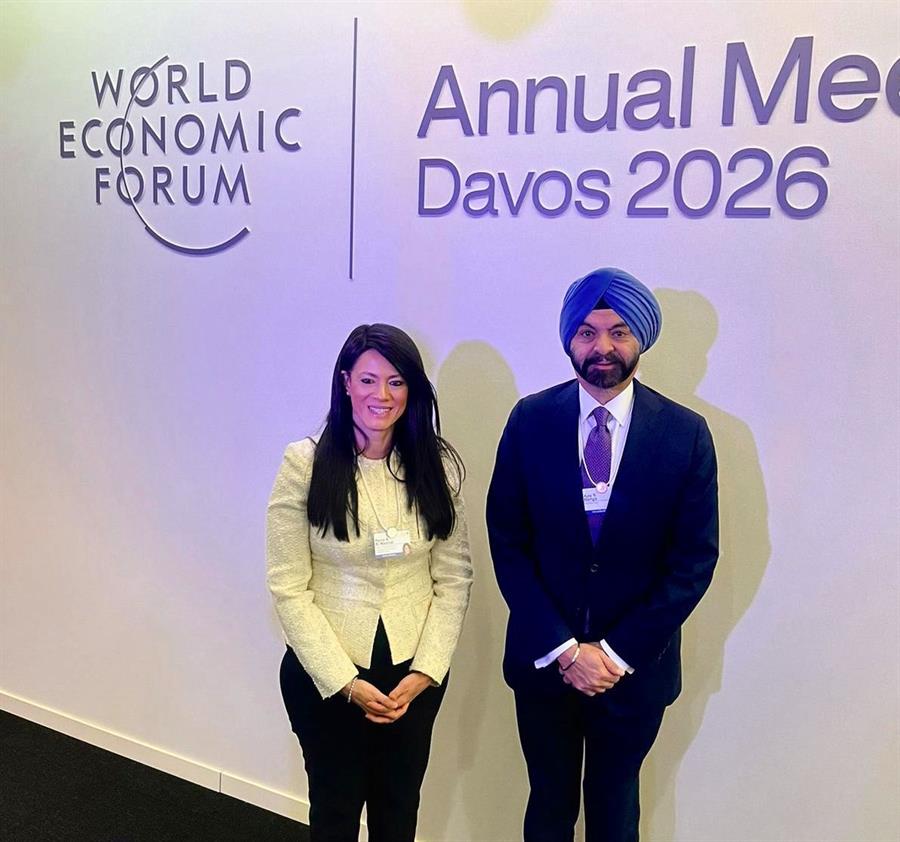Minister of Planning, Economic Development, and International Cooperation Participates in the Islamic Development Bank's Board of Governors Roundtable
23 May 2025
Under the theme "Bridging the Gap: Multilateralism and the Future of Development Finance"
Minister of Planning, Economic Development, and International Cooperation Participates in the Islamic Development Bank's Board of Governors Roundtable
Roundtable promotes strategic dialogue among the Bank's Governors on development issues and global challenges.
“Al-Mashat”: Macroeconomic stability is necessary to drive growth, but it also requires structural reforms that empower the private sector.
Middle-income countries face complex challenges, most notably limited fiscal space and debt burdens.
H.E. Dr. Rania Al-Mashat, Minister of Planning, Economic
Development, and International Cooperation and Governor of the Arab Republic of
Egypt to the Islamic Development Bank Group, participated in the Bank
Governors’ roundtable held under the title “Bridging the Gap: Multilateralism,
Changing Trade Dynamics, and the Future of Development Finance,” organized as
part of the 50th Annual Meetings of the Islamic Development Bank Group, held in
Algeria from May 19 to 22, 2025.
The roundtable aimed to enhance strategic dialogue among the
Governors of the Islamic Development Bank Group on development issues and
global economic challenges, forming common visions regarding ways to confront
current global and regional threats, and explored what is required from the
Islamic Development Bank Group in the coming period to strengthen its role in
building fruitful development partnerships with member countries, in line with
the new changes.
During her speech, H.E. Dr. Rania Al-Mashat explained that
macroeconomic stability is a fundamental prerequisite for launching into
growth, but it is not sufficient on its own without structural reforms that
activate private sector participation and enhance its capabilities in the
development process. H.E. emphasized the importance of formulating clear
national visions for how to engage the private sector, ensuring a transition
from the challenges associated with the fluctuations of the global economy toward
a sustainable development path.
H.E. added that the world is accustomed to discussing a
vicious cycle related to monetary policy and exchange rate challenges, while
the current phase requires building a "positive reform cycle" that
starts with macroeconomic reforms, leads to economic stability, and followed by
genuine structural reform that is reflected in development rates and social
welfare.
In the same context, the Minister of Planning, Economic
Development, and International Cooperation pointed out that middle-income
countries face three main challenges: limited fiscal space resulting from
recurrent economic shocks and the need to achieve development, the necessity of
greater private sector engagement to bridge the financing gap for the Sustainable
Development Goals (SDGs) and provide additional resources, and the high debt
burdens that impose further constraints on the ability of countries to move
towards development.
H.E. affirmed that innovation and entrepreneurship are two
essential pillars to overcome these challenges, and emphasized that
middle-income countries cannot progress unless they adopt models based on
innovation, stimulate entrepreneurship, and create a more attractive
environment for private sector participation.
H.E. also addressed the importance of proactive and
sustainable public debt management, pointing to the Fourth International
Conference on Financing for Development to be held in Seville, which will
represent an opportunity to present innovative solutions such as debt-for-development
swaps as an effective model linking sustainability goals with financial
stability.
Al-Mashat underscored that development agendas for the
upcoming phases must include three key areas, foremost among them international
support for environmental and climate investments, along with concessional
financing for the private sector and expanding partnerships through integrated
financial tools, including domestic resource mobilization and innovative
initiatives such as debt-for-green-development swaps to enhance the private
sector’s ability for effective contribution to development, as well as
strengthening South-South cooperation through country platforms that share
success stories and effective practices to motivate other countries to adopt
similar models, reflecting the significance of building knowledge-sharing
networks among developing countries beyond traditional frameworks.
The Bank's Governors discussed three main themes:
"Reformulating financial strategies to ensure structural resilience, enhancing
multilateral cooperation, and the role of Islamic financial institutions in
achieving sustainable development." Participants also deliberated on ways
to enhance regional integration and encourage trade exchanges in light of the
current challenges facing global trade.









